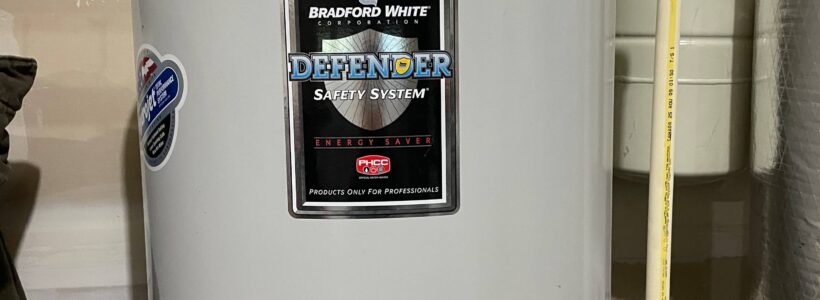Water Heater Info
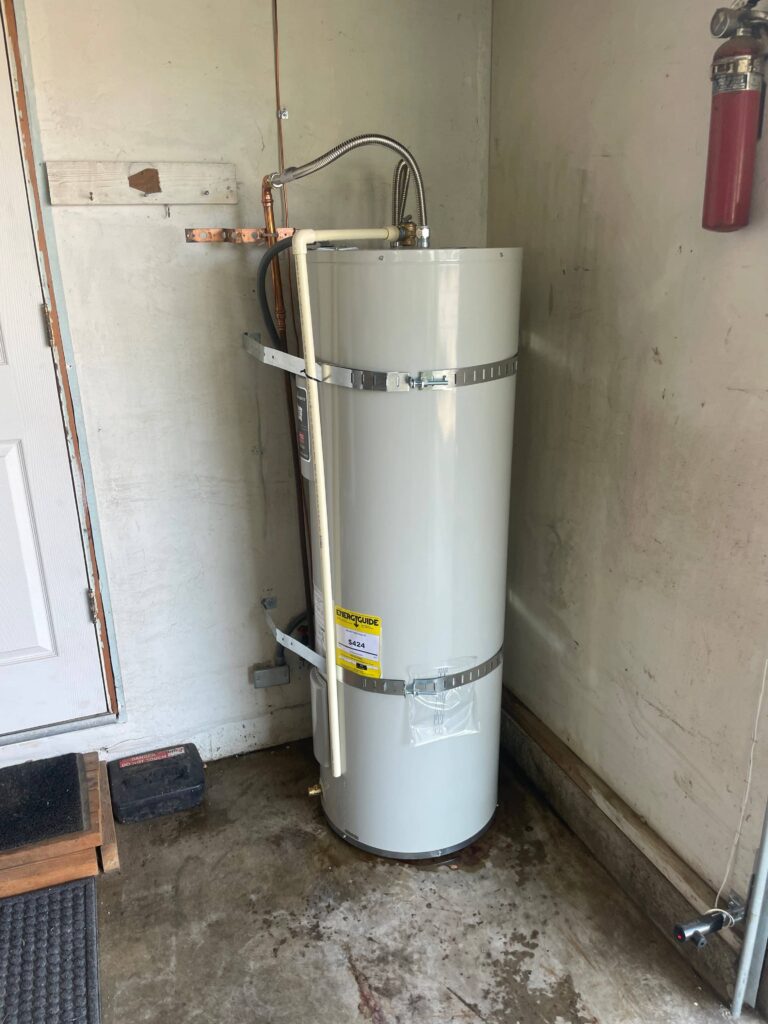
What’s Inside a Water Heater and How It Works
Although many people think that a water heater is just a large tank that stores hot water, the reality is more complex. A water heater consists of multiple tanks and components that work together to heat and store water for on-demand use.
The heater contains a thermostat that controls the water temperature and sends it to the tank. The tank has an anode rod that prevents it from rusting by attracting corrosive elements. Additionally, there are large pipes that bring cold water from the main water line into the tank and then release hot water for use.
Depending on if you have a gas water heater or an electrical water heater changes how you would go about troubleshooting the problems and getting a plumber in for a water heater repair.
Despite their simple appearance, water heaters are actually complex systems that play a crucial role in your daily life and daily routines. A water heater not working can really throw you for a loop in your day.
Signs Your Hot Water Heater Is Going Out
Several signs can tell you if your water heater needs to be replaced. If you notice any of the following, it’s time to start thinking about servicing your system with a water heater repair or getting a new water heater. A few situations include:
- Hot water runs out fast. Faster than you’ve realized before
- You’re taking more cold showers.
- Your water is extremely hot for short periods
- You have lower water pressure when using hot water
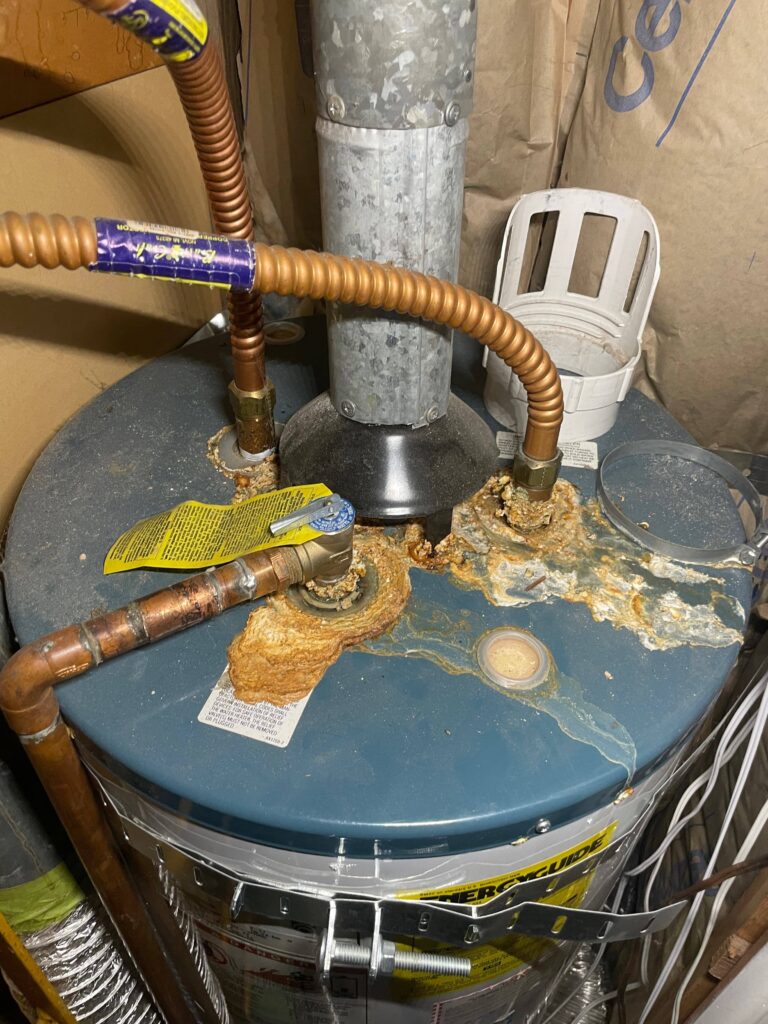
Troubleshooting A Broken Water Heater
To troubleshoot your water heater, you need to consider your system type. For gas heaters, check if it’s tankless or storage and whether it uses natural gas or propane. For electric heaters, check the heating elements and see if there is a faulty thermostat or bad breaker in your electrical system unrelated to the water heater.
If you think that something is wrong with the water heater itself, start by checking the thermostat. You should also check the anode rod for corrosion and ensure that all of your connections are secure. If you’re still having issues, it may be time to call a professional plumber in order to diagnose
Gas Water Heaters
Gas water heaters are fairly simple and quite reliable when it comes to the basic parts. They will consist of a storage tank, gas line or gas supply, pilot light, water pipes, and thermostat.
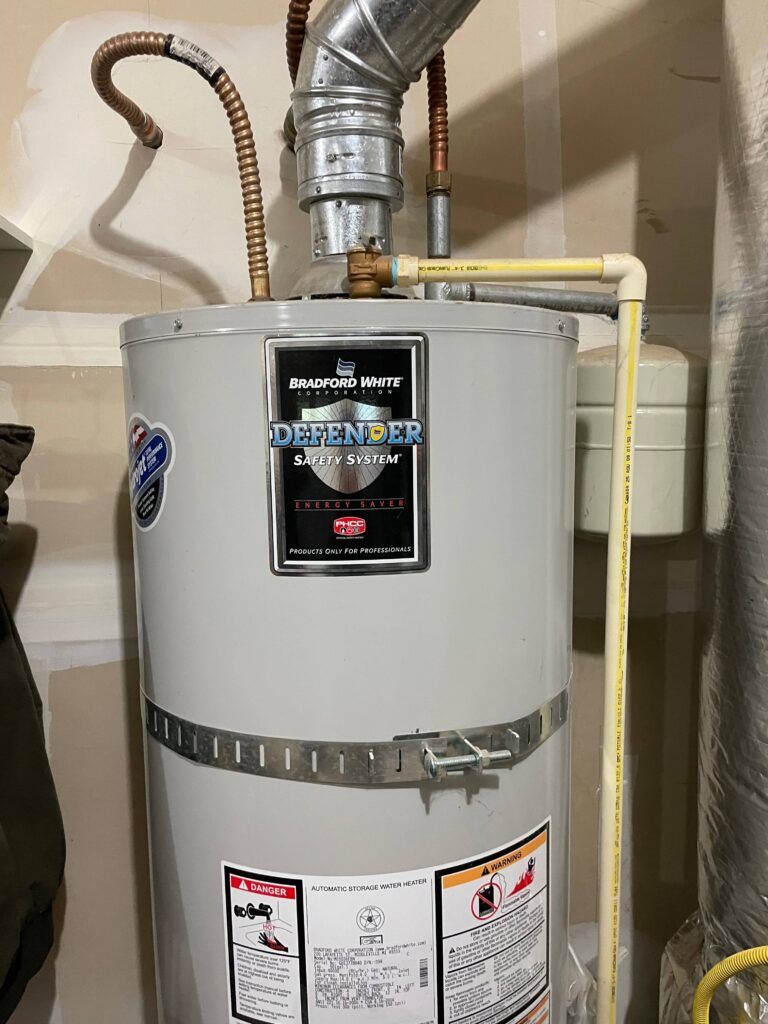
To start diagnosing a gas water heater you’ll want to check these different parts using some simple equipment. Does the gas pressure flow enough for the gas line? You can turn it on briefly and feel the gas with a wet finger. Does the storage tank leak? If you can spot rust or water around your outer tank those are good indicators. Is the hot water produced just lukewarm? Put a garden hose on the drain valve to drain out the sediment accumulation
Electric Water Heaters
Electric water heaters require two heating elements to work properly. If you have a broken heating element your hot water will be insufficient or non-existent. Other electrical issues can include a faulty circuit breaker, faulty heating element, a malfunctioning upper thermostat, lower thermostat, or wiring problems at the breaker box.
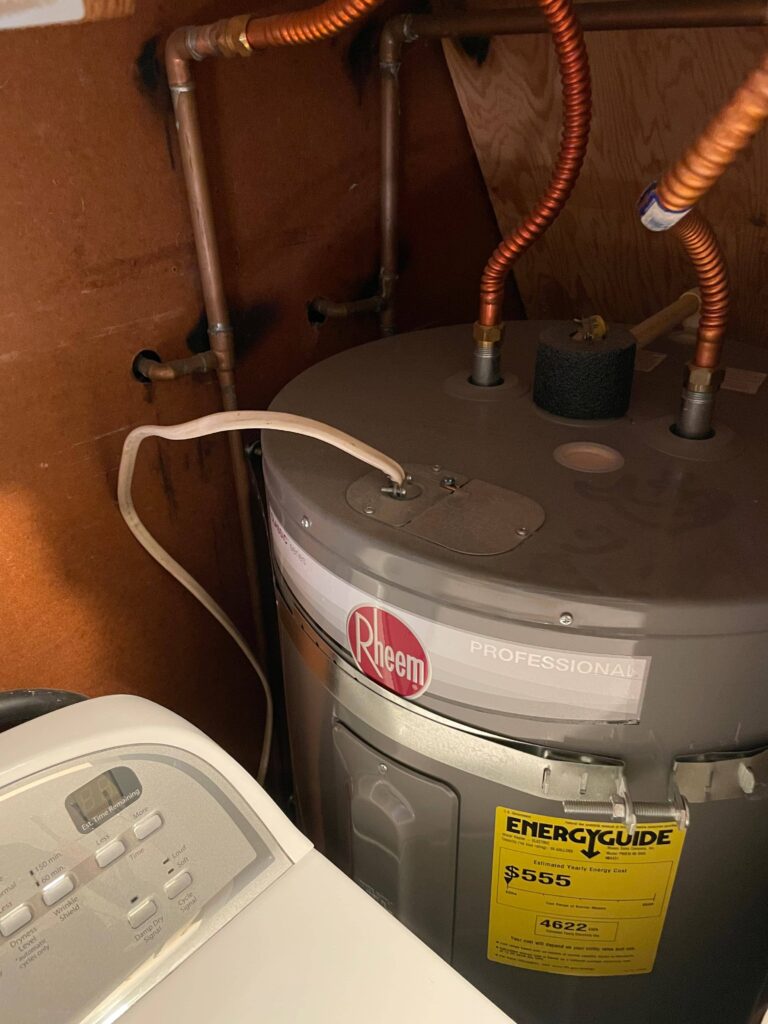
To troubleshoot an electric heater you’ll want to inspect both heating elements, check the wiring, and make sure all connections are secure. They don’t have a pilot light and instead you’ll need a way to test electrical usage.
When it comes to why doesn’t my hot water last long, there could be several underlying causes. It’s important to inspect your system for any signs of wear and tear or general disrepair. If something looks off then it’s time for some troubleshooting and potentially replacing your current system with a new one.
How to Identify and Fix a Hot Water Heater Problem
Low Supply of Hot Water
Gas
If you run out of hot water too fast or you’re just not getting enough hot water you may have either an issue with your dip tube or a water tank that is too small for you. (Tankless or On-Demand heaters are a great option. A few reasons you might want to consider the upgrade – No hot water tank, ability to maintain constant water temperature, takes up less room, and only works periodically or when you need (on demand) so they’re more efficient.
Electric
Does it only supply a small amount of hot water and then it’s only warm water or lukewarm water? You may have a bad lower element or aging heating elements with sediment build-up.
Common Causes Of A Damaged Lower Heating Element

There are a few common causes of a damaged lower heating element. Such as: age, sediment build-up, and excessive temperature. It’s important to have your water heater regularly serviced by a professional plumber in order to make sure that this doesn’t happen to you.
By understanding the potential causes of why your hot water doesn’t last long, you can help prevent any damage to your water heater. If you ever experience an issue with your water heater that you can’t solve yourself, it’s important to seek professional assistance from an experienced plumber who can recommend the right solution for you. By addressing these issues quickly and correctly, you can ensure that your hot water lasts as long as possible.
Water Temperature Is Too Hot
If you’re getting a scalding hot water from the tap, it’s possible that the thermostat is set too high. You can check your thermostat and adjust it as needed. Additionally, if you have hard water in your home, this could be creating additional heat in the heater due to its scale buildup.
Takes a Long Time to Produce Warm Water
If it takes a long time to produce warm water, it could be due to the tank size being too small for your needs. It may also be due to sediment buildup inside of the tank as this can reduce the efficiency of your system. If you have an old unit, it’s possible that the heating element has gone bad or your thermostats aren’t regulating properly
Water Heater Runs Out Of Hot Water Quickly: Possible Reasons Why
There are several reasons why your water heater may be running out of hot water quickly. It could be due to a worn-out heating element or sediment buildup inside the tank which reduces its efficiency. Additionally, if you have an undersized tank for your needs, it won’t last long enough for everyone to take a shower. Finally
Rust-Colored Water or Bad Odor
If you notice a bad odor or rust-colored water coming out of your tap, it’s likely due to corrosion inside the water tank. Corrosion is a common problem with older water heaters and can cause damage to other components. It’s important to replace the water tank if this issue occurs as soon as possible.
Leaking Water Heater Tank
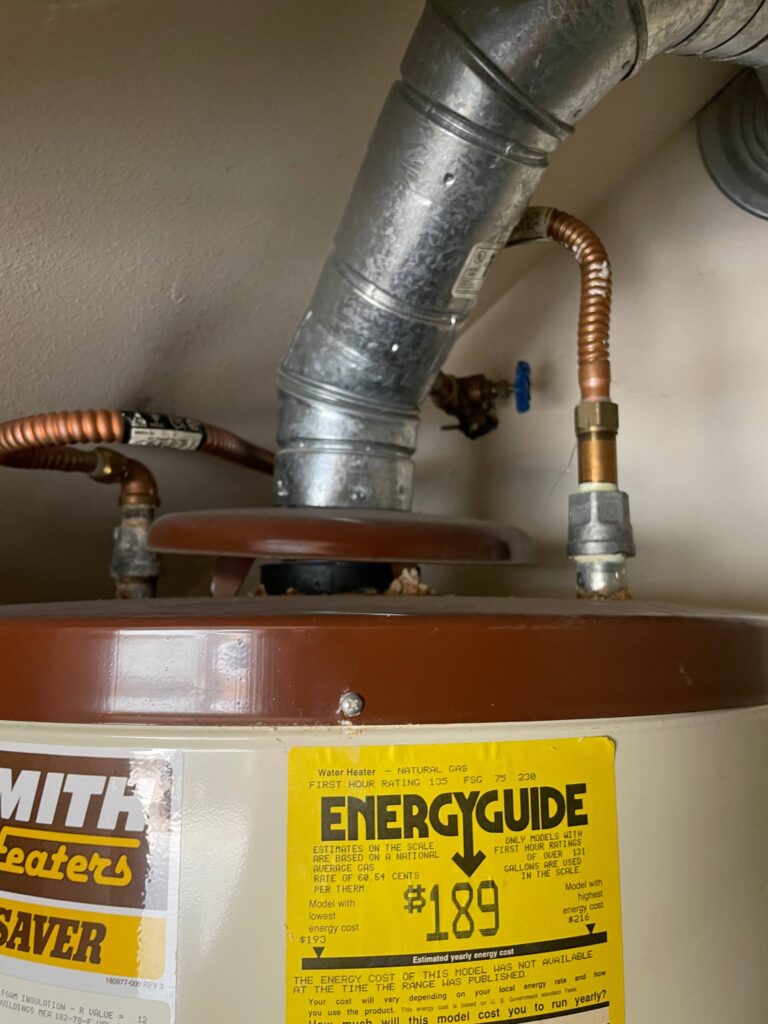
If your water heater is leaking, it’s possible that the tank has ruptured due to corrosion or wear and tear. It’s important to get this fixed as soon as possible as it can cause serious damage to your home and be potentially dangerous. Additionally, a leaking tank could be caused by an issue with TPR valve failing or activating. Either of these situations could cause significant damage if left untreated.
Tank Making Noises
If your water heater is making strange noises, it could be due to the build-up of sediment inside the tank. As mineral deposits accumulate, they can form a crust on the bottom of the tank which creates noise when hot water is running through it. It’s important to flush out your tank regularly in order to avoid this issue.
Water Leaks
Around the Base of the Tank
If you’re noticing water around the base of your water heater, it’s likely due to a faulty gasket or seal. This can cause serious damage if left unchecked and should be replaced as soon as possible.
By understanding why your hot water runs out so quickly, you can take the appropriate steps to ensure your water heater is functioning properly. Regular maintenance, such as flushing out the tank and inspecting seals and gaskets can help to prolong the life of your water heater. Additionally, if you have an undersized tank for your needs, consider replacing it with a larger one in order to get longer-lasting hot water.
Damaged Temperature and Pressure Relief Valve
If your pressure relief valve is not working properly, it could be discharging hot water instead of steam. This can result in a significant loss of hot water and should be fixed as soon as possible. It’s important to have your pressure relief valve checked regularly to avoid any potential issues.
By paying attention to the signs that your water heater is not working properly, you can prevent long-term damage and costly repairs. With the right maintenance and understanding why your hot water runs out so fast, you can ensure that your water heater will last for many years to come.
The team at Pinnacle Plumbing and Drains Inc. is here to help with all of your water heater needs.
Gas Valve Failure
If your hot water runs out quickly, it’s possible that the gas valve isn’t working properly. The gas valve regulates the temperature of the water heater, so if it’s faulty, it won’t be able to maintain a consistent temperature and will result in shorter-lasting hot water. If you suspect this is the case for your water heater, it’s best to contact a professional for help.
Incorrect Temperature Settings
If the temperature setting on your water heater is too high, your hot water will run out quickly due to over-consumption. It’s important to set the appropriate temperature—between 120 and 140 degrees Fahrenheit—to ensure you’re
Water Heater Age and Size
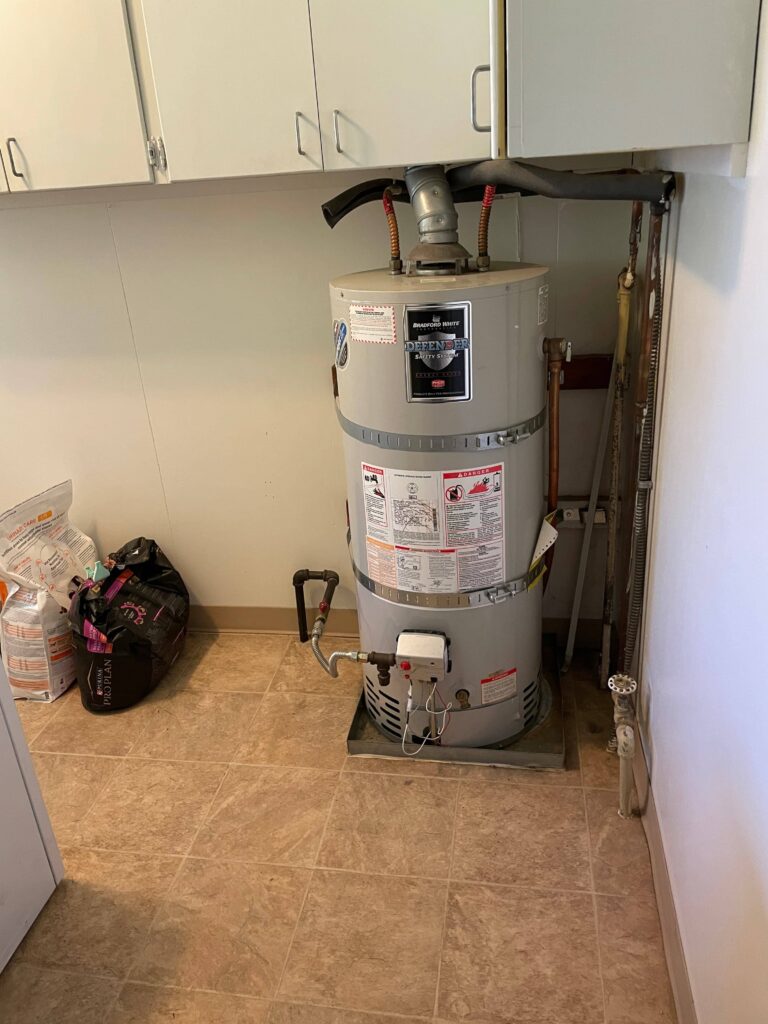
Finally, older or undersized water heaters will struggle to keep up with a large demand for hot water. If your current water heater isn’t providing enough warm or hot showers, multiple loads of laundry, and dishwashing without running out quickly, then it may be time for an upgrade. In order to find the best tank or tankless option that will meet your needs, consult a professional plumber who can recommend the right
Thermostat Malfunction
In some cases, the thermostat on the heater is not working and causes hot water to run out quickly or only deliver cold water. The thermostat controls the temperature of the heater, so if it’s not working properly, you won’t have hot water for long. A professional plumbing technician will be able to diagnose this issue and help you fix it.
If your hot water runs out more quickly than expected, there are a few potential causes that you can investigate.
A Broken Dip Tube
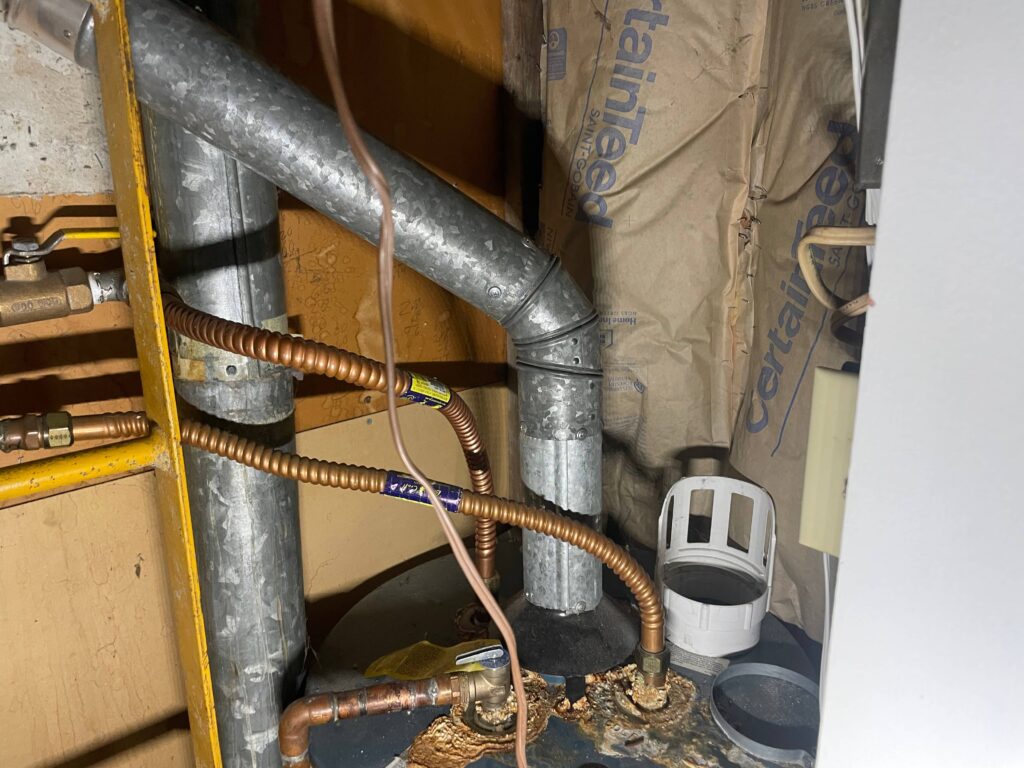
The dip tube is a plastic pipe that runs down the center of your water heater. It’s responsible for delivering cold water to the bottom of the tank, where it is heated by the lower heating element. If this tube becomes blocked or broken, then hot water won’t last long in your tank. Fortunately, a plumber can easily replace the dip tube, so it’s important to check this if you’re experiencing a shorter hot water supply.
Remove the Bad Element
If your water heater has multiple heating elements, then you may need to remove the bad element and replace it with a new one. This is a job best left to an experienced professional plumber since incorrect installation can lead to further problems down the road. It’s also important to check that all wiring and electrical connections are correct before attempting to remove a heating element.
Why A Dip Tube Might Get Damaged
If your hot water runs out quickly, it could be caused by a damaged dip tube. This can happen for several reasons, including an accumulation of sediment or corrosion in the tank over time. It’s important to flush your water heater every few months to prevent this from happening. Additionally, you should also check the dip tube for any signs of damage and replace it if necessary.
Before You Begin: Check the Warranty
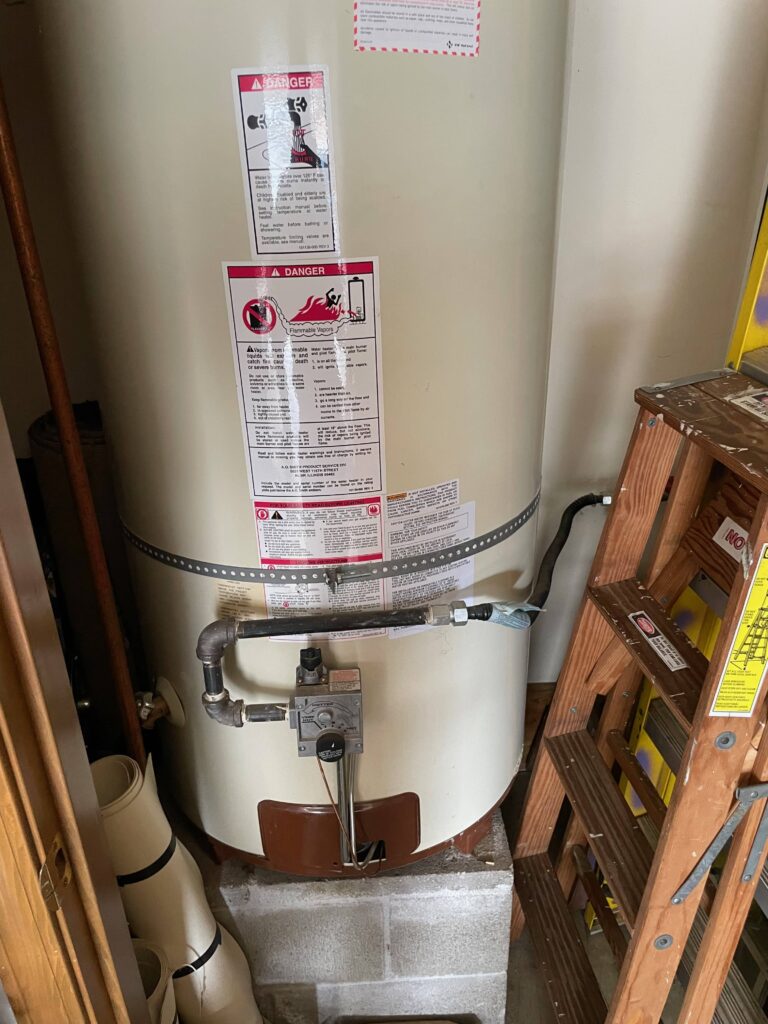
Before you make any repairs, it’s important to check your water heater’s warranty. Some manufacturers will cover the cost of a new dip tube or heating element if they are damaged due to a defect. If this is the case, then you may be able to get your hot water supply back quickly and without additional costs.
FAQ:
- Why doesn’t my gas hot water heater stay hot long?
- Why does my hot water last 5 minutes?
- Why is my hot water heater not staying hot very long?
- Why does my hot water only last 10 minutes?

